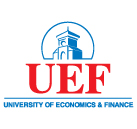Workshop on university study methods - Session 2: Reading skills, taking lecture notes
In order to equip first-year students with basic knowledge and skills of reading, listening to lectures and taking notes, the Faculty of International Relations organized the second Workshop with the topic "Reading skills and methods of taking lecture notes" - This is the second sharing session in the series of Workshops on University Study Methods for first-year students of the Faculty of International Relations. The event took place at 6:30 pm on October 22, 2021 in an online form via the Zoom platform.
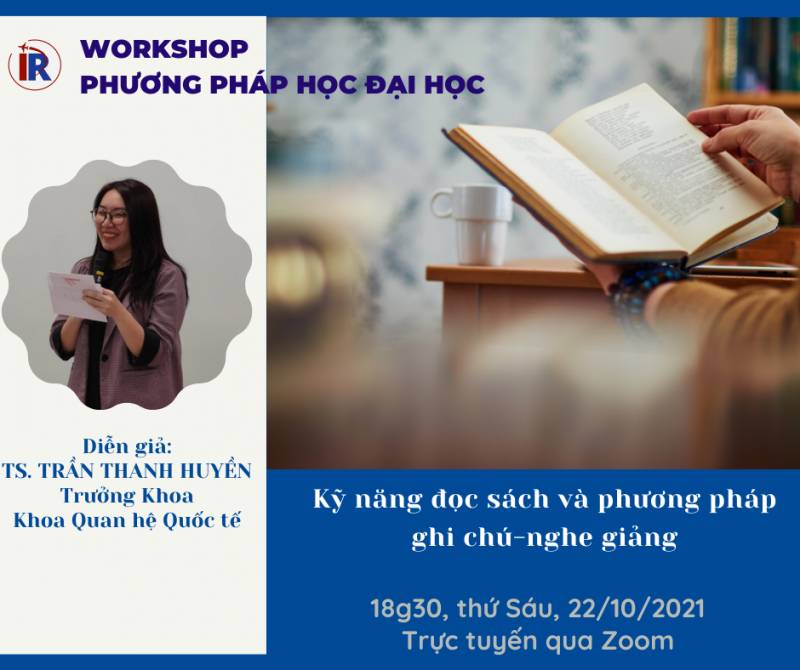
The event has the participation of BOD-FIR, the direct guidance of Dr. Tran Thanh Huyen, Dean, Faculty of International Relations and first-year students of IR house in the academic year 2021-2022. The main content of the training session focused on guiding students to effective reading skills and the method of taking notes-listening to lectures in the learning process.
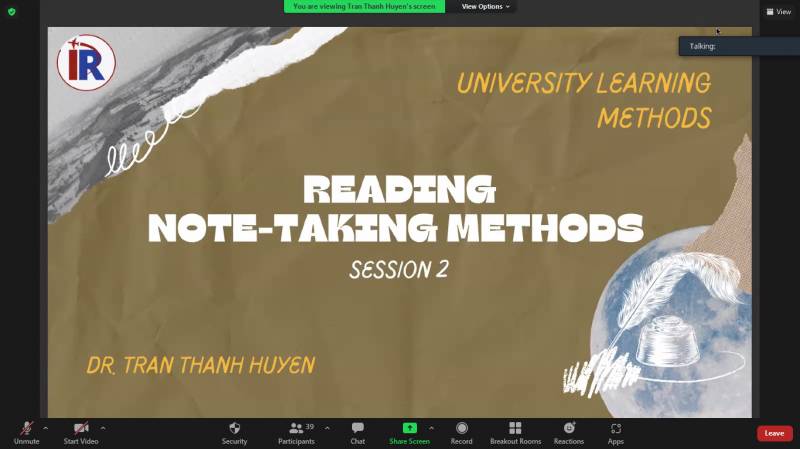
Opening, Dr. Tran Thanh Huyen shares about why she chose to study International Relations. It was International Relations that piqued her curiosity about understanding the world around her through observation. Through the process of studying this industry, Ms. Huyen realized how to take advantage of her experiences gained through her trips to work and life and form a serious and high-productivity working attitude. Then, to understand the difficulties that students are having in reading books and taking notes, Ms. Huyen used the software menti.com to collect students' opinions. Many of the answers you gave were like too much information, did not have time to take notes on important points or did not recognize the key words in the lecturer's lecture. Since then, Ms. Huyen summarized the reasons to explain the above difficulties of the students. One is that the student writes without listening, two is notes wrongly with important information, three is to write without reviewing, four is to write down everything the teacher says. Through the above reasons, Ms. Huyen posed a question: So how do we know what we need to write?
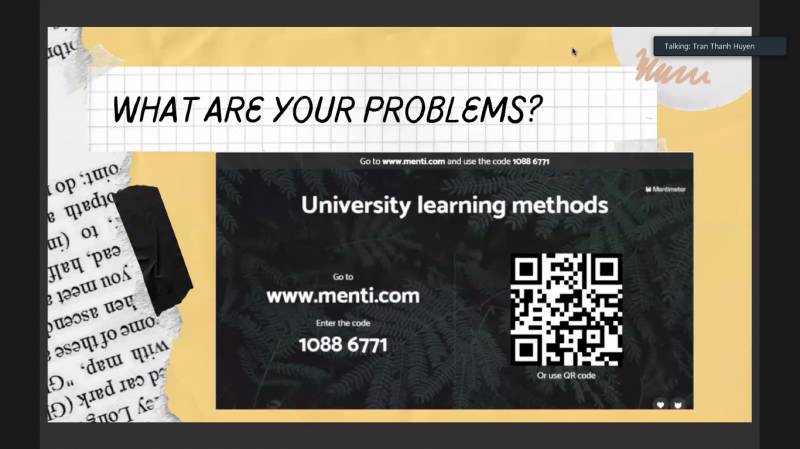
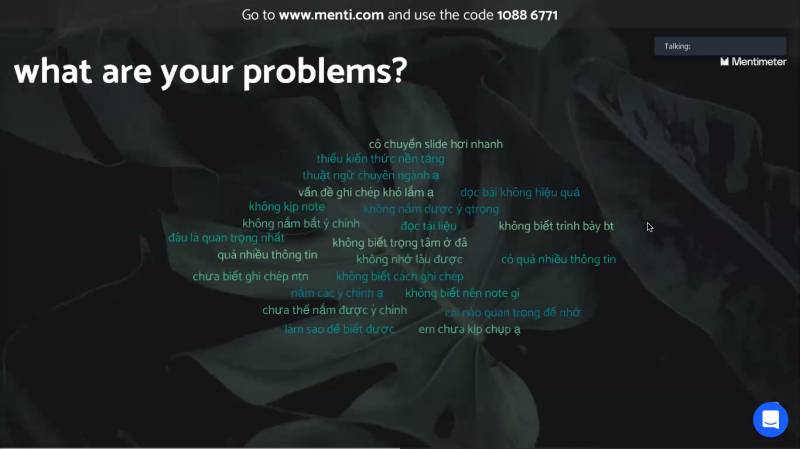
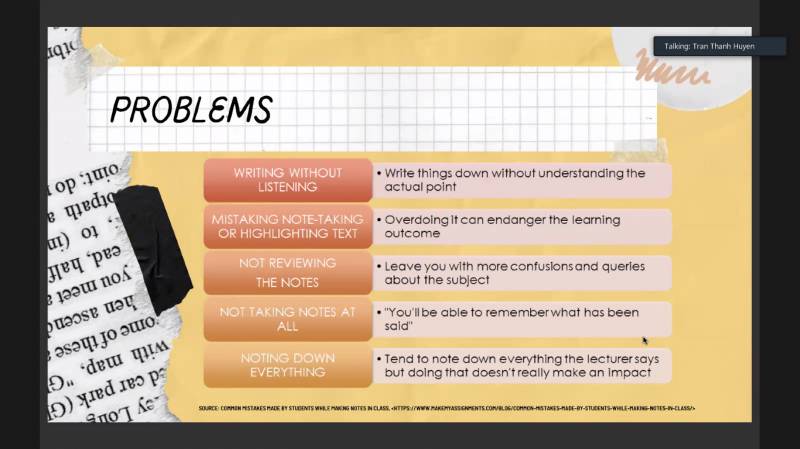
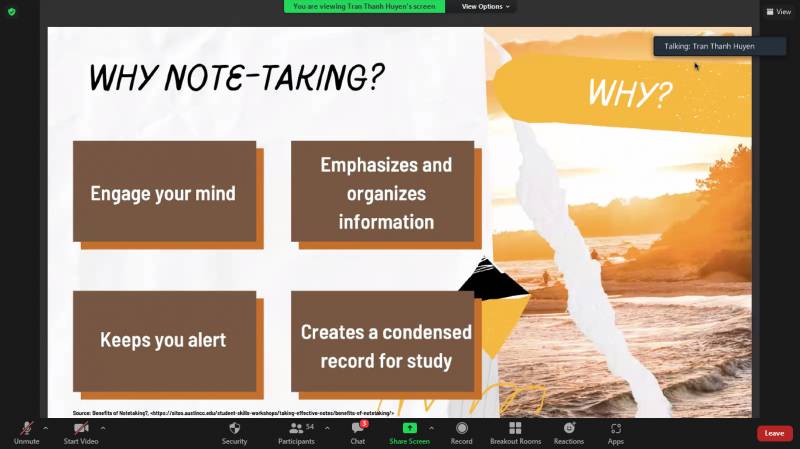
To answer the above question, we need to know why we need to take notes - Huyen shared. Taking notes will attract the attention of our brain to focus on listening to express what we have heard in our own words. Second, what I have to write is what I need to remember. Third, taking notes will help condense the content presented by the teacher, creating a system in the arrangement and thinking of acquired knowledge. Besides, Ms. Huyen introduced you to many types of notes such as outline form, Cornell model notes, boxing structure or 365 formula. In each method, Ms. Huyen provided Visual illustrations and clear analysis for you to see the advantages and limitations of each method of note-taking.
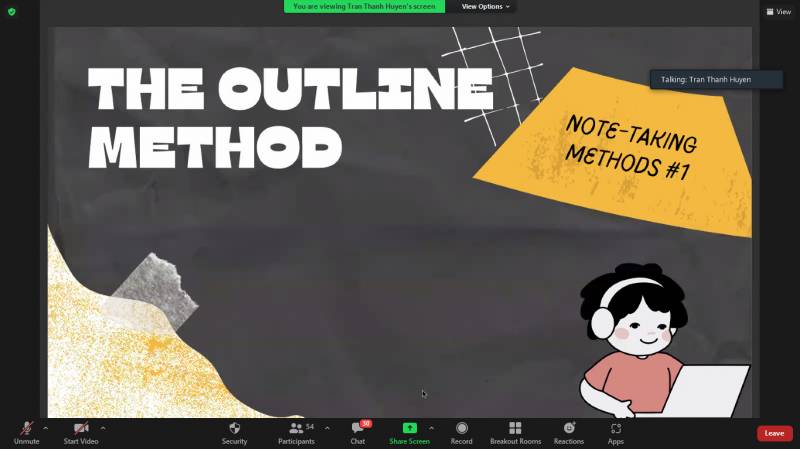
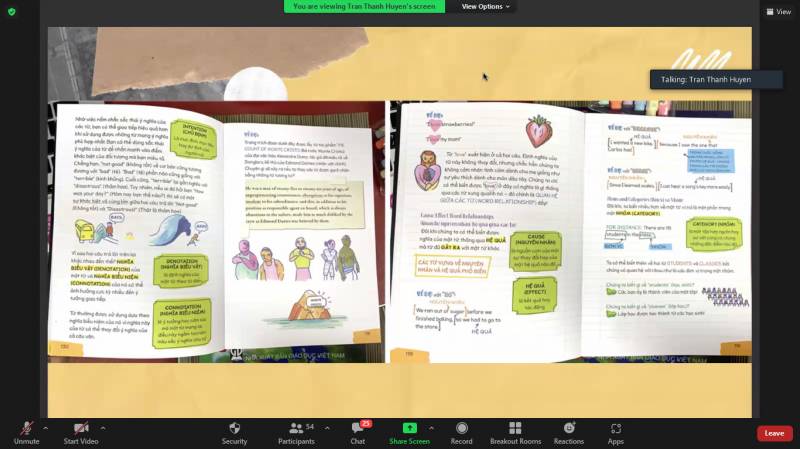
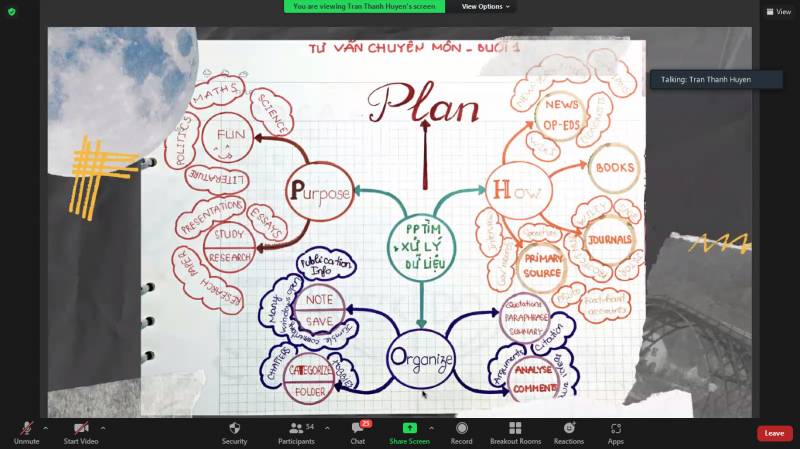
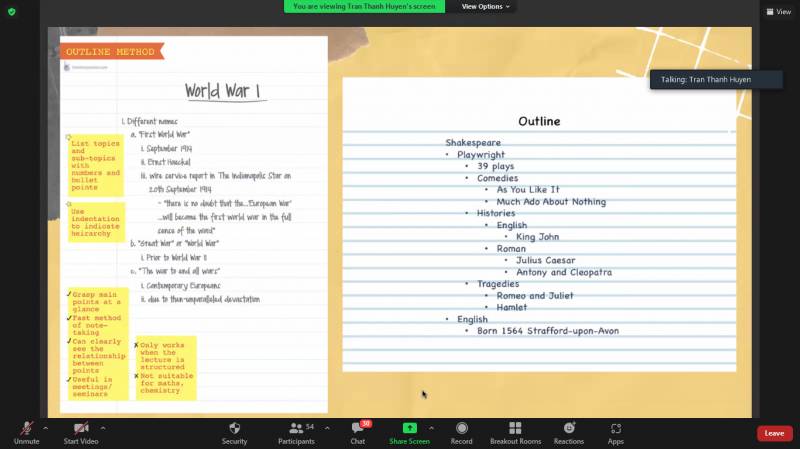
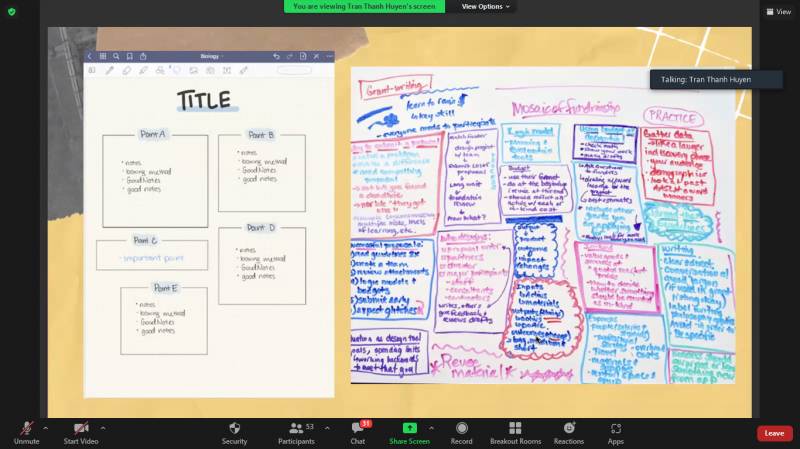
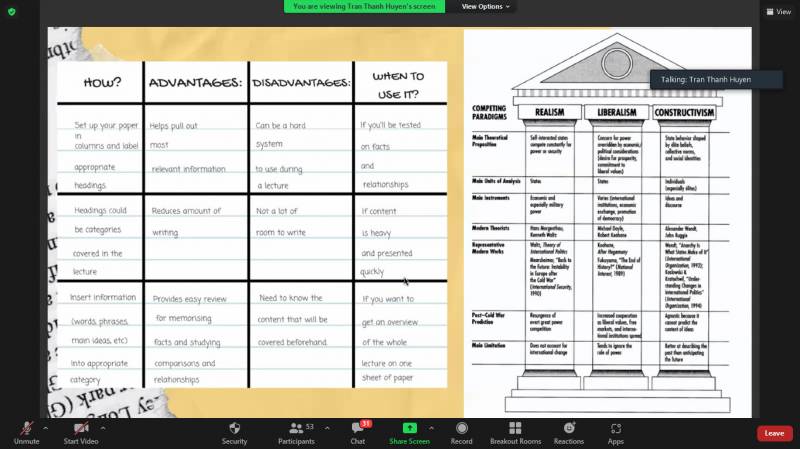
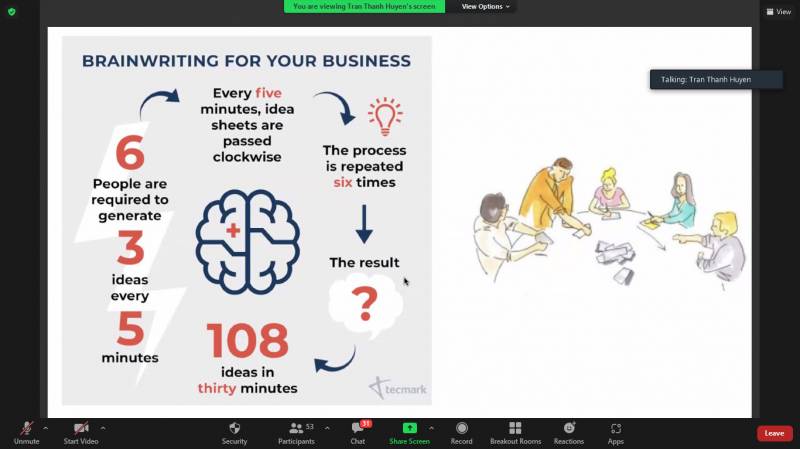
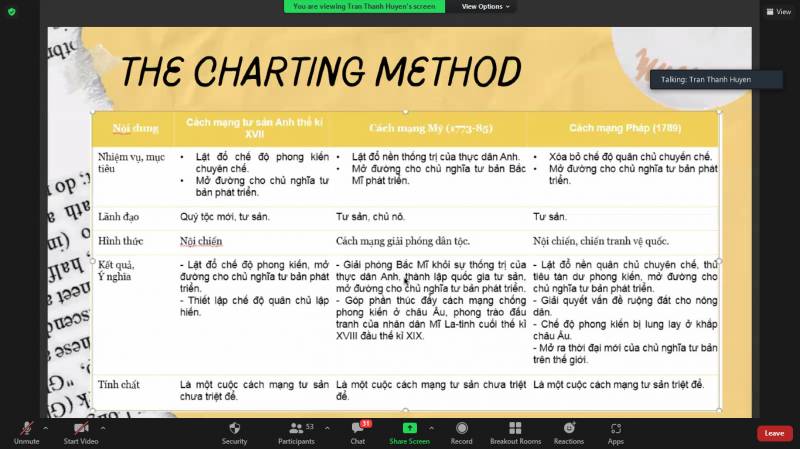
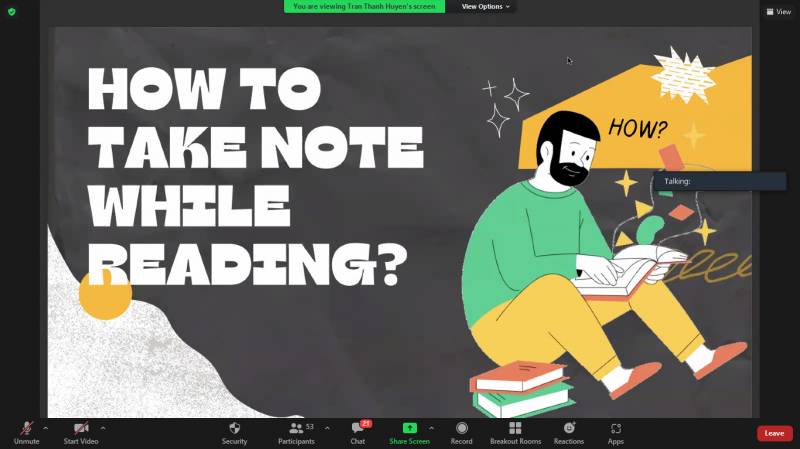
After students understood the benefits of taking notes, Dr. Tran Thanh Huyen introduced to students the learning cycle, including the following steps: preview => attend => review => study => check.
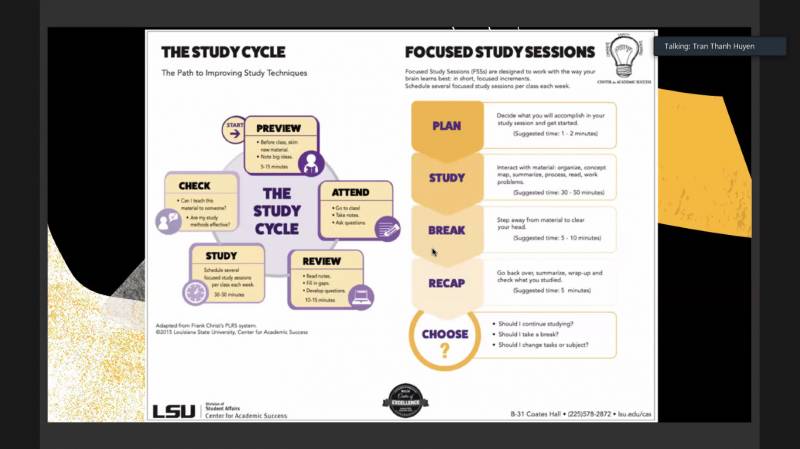
Learning starts from the moment we prepare to read the material under the guidance of the teacher to form basic perceptions of the knowledge that will be explained by the teacher in the lesson. “Attend” is when we participate directly in an offline or online class, know when to take notes on things to remember and interact with teachers and classmates by asking and answering questions. The review step and the students re-read their notes, answer questions they did not understand in the preview phase, and ask critical or descriptive questions, feeling the problem presented. “Study” is the fact that we make a specific timetable to focus on lectures, classes in each class, each week. In this step, Ms. Huyen introduces to you 4 small steps: plan => study => rest => systemize knowledge. The last step is to check and compare. “Can we restate what the teacher has taught? Is my learning method effective or not?” are questions that students need to answer in the step of reviewing what they have learned in the past.
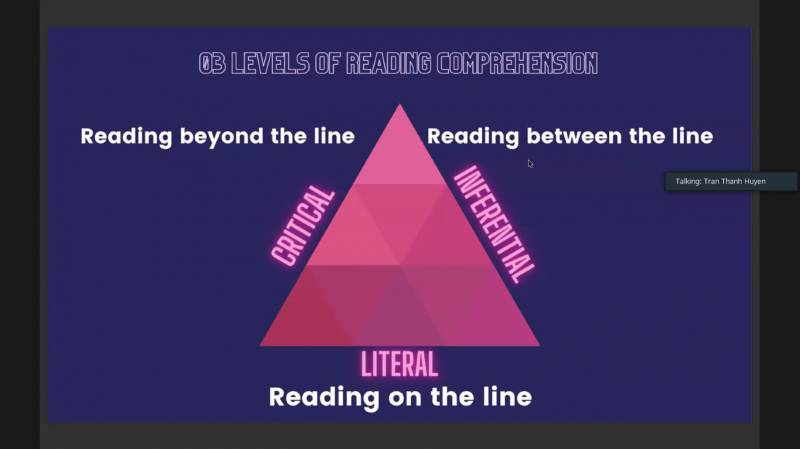
To achieve this cycle, students must focus on the subject outline provided by the teacher in the first lesson to identify the content they will learn, allocating a reasonable time for each content. dung. Students should note that the "requirements for students" in the outline are the part that students have to prepare at home, not what they get after listening to the lecture.
Next, Ms. Huyen shared with students 3 levels of reading comprehension:
- Reading on the line: literally, students read what is on books, textbooks, references
- Reading beyond the line: this is the process by which students ask critical questions about the ideas and opinions of the book.
- Reading between the line: based on what they have read, based on different aspects to see, students will conduct inferential questions about the problem being presented in order to expand their knowledge and understand the author's point of view and deep meaning in that article.
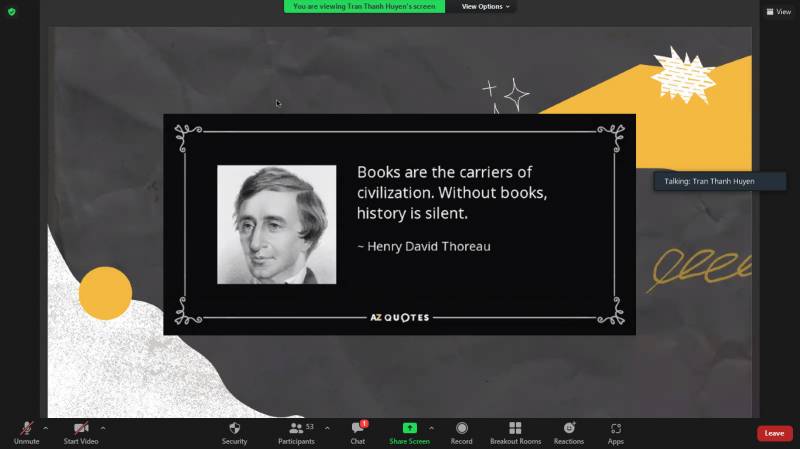
Through that, Ms. Huyen affirms the important role of books in learning and researching because books contain knowledge condensed from the author's experience and contemplation about life that students can refer. So how to form an effective reading method? (1) Do not read from beginning to end, look at the table of contents to understand the general spirit of the book; (2) read into the big ideas, big chapters in the book; (3) read to the relevant details; (4) read and have to take notes on what we have read because books we can read once but our notes will be used many times. Come here Dr. Tran Thanh Huyen introduced some ways of taking notes during reading such as: underlining the main points, keywords; draw straight lines in the margins; asterisk, asterisk in the margin; numbering in margins, paragraphs; Circle the key phrases in the text.
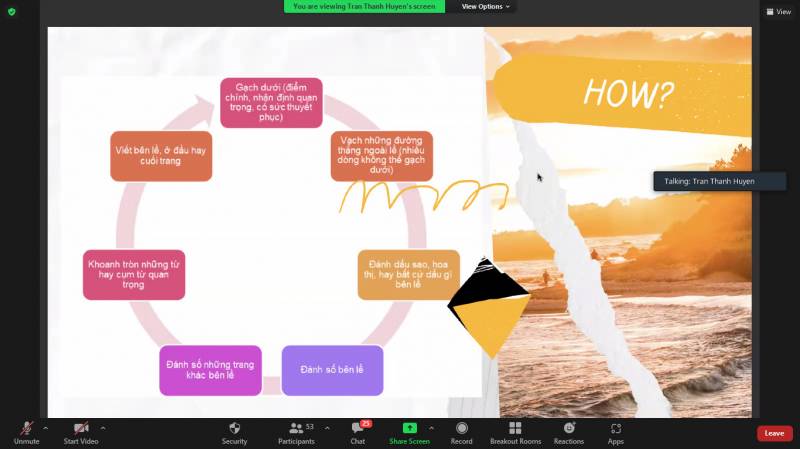
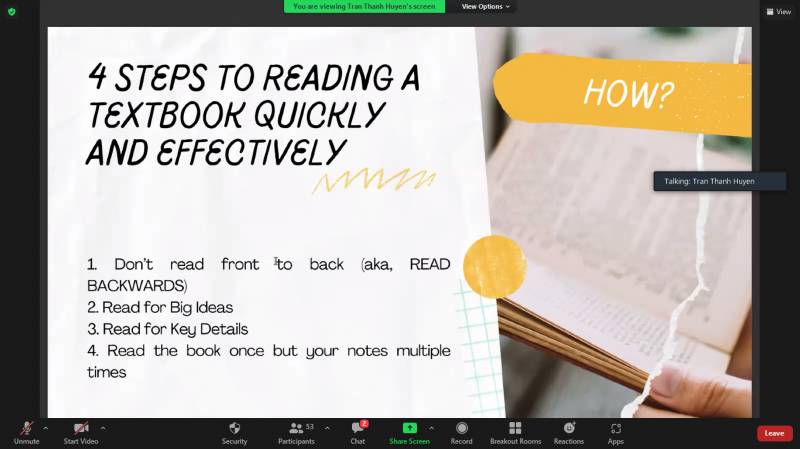
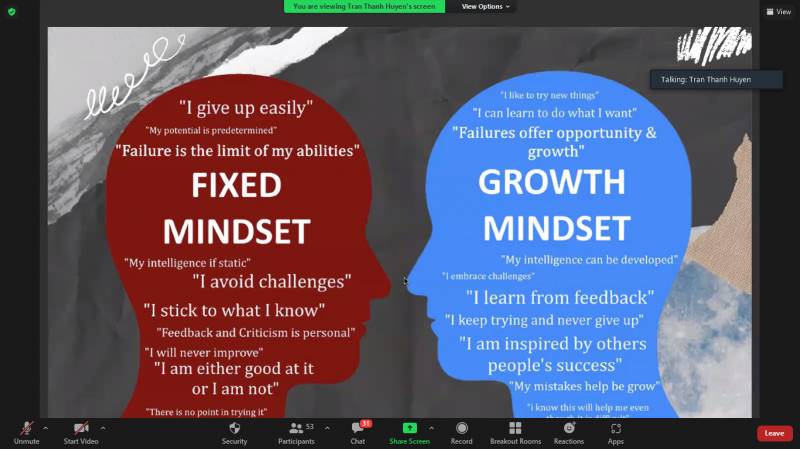
At the end of her sharing, Ms. Huyen advised the students to choose for themselves the methods that are right for them in reading books and taking notes. Especially students need to form an open mind with thoughts such as: I like to try new things; I can learn what I want; failure brings opportunities for growth,... Open-mindedness so that we can absorb knowledge faster and go further in study and work.
